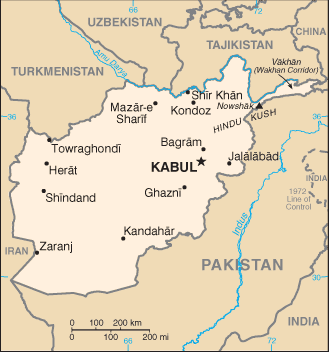Defense Secretary James Mattis is in Afghanistan today, but plans to meet with his Afghan counterpart fell through when it turned out that Afghanistan doesn’t have a defense minister anymore, as Abdullah Habibi had resigned earlier in the day, along with Army Chief of Staff Qadam Shahim, related to the Taliban’s Friday attack on an Afghan military base.
 Mattis did meet with Afghan President Ashraf Ghani, and offered the same assessment that US officials have been offering on the Afghan War for the past 16 years, that it’s “going to be a tough year” in Afghanistan, and that the US appreciates the major problems facing the country.
Mattis did meet with Afghan President Ashraf Ghani, and offered the same assessment that US officials have been offering on the Afghan War for the past 16 years, that it’s “going to be a tough year” in Afghanistan, and that the US appreciates the major problems facing the country.
A “tough year” goes without saying in the US war in Afghanistan, and is really an understatement, with the Taliban’s mounting gains across the country giving it control of more territory than at any time since the 2001 US invasion. The US is expected to send more troops to try to slow the losses.
The Friday Taliban attack near Mazar-e Sharif, which killed over 160 Afghan troops on a military base, has only added to uncertainty about the Afghan government’s ability to resist the Taliban going forward, and while the resignations were offered as proof that the Afghan government is taking the situation seriously, it’s not clear what changes might take place.
Indeed, it’s not clear that the officials who resigned are at all to blame for the Taliban attack, in which 10 Taliban managed to infiltrate the base, aided by four soldiers who were already working for the Taliban, and quickly carried out huge attacks.
Low pay and massive attrition has left the Afghan military perennially desperate for recruits, and this has allowed the Taliban to place a number of its own fighters into the ranks of the security forces, allowing for such attacks. The reality is that this is probably going to continue no matter who is the defense minister, and the policies that allowed the Taliban’s mass infiltration in the first place are likely to remain unchallenged.


